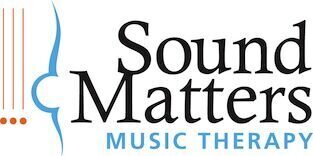Each Monday, I will be writing up a short, non-academic review of an article I’ve found interesting. These articles will be taken from music therapy peer-reviewed journals.
The article I’ll briefly review tonight is, “Elementary-Aged Children’s Aesthetic Experiences with Music,” by Phyllis M. Paul. The article was published in Journal of Music Therapy, XLV(2), 2008, 135-146.
After reading this article, I have two big questions. First, though, let me tell you a little bit about the piece:
- On page 136, the all-important definition of the word “aesthetic” in this article is this: ” ‘… intense subjective and personal experience; feelingful reaction; requires perception, experience of feelings and reactions, and psychological involvement.’ “
- The measurement tool is the Continuous Response Digital Interface (CRDI), which is “a potentiometer interfaced with a computer that allows the measurement of a response simultaneously with stimulus presentation” (pg. 136), on which the left side was marked “0” and the right, “255.” The study considered whether fourth grade students of three types — normally developing, students with special needs, and gifted students — could use the CRDI to express aesthetic experiences.
- The piece used in the study was “18th Variation” from Rhapsody on a Theme of Paganini, Op. 43, by Rachmaninoff. Reasons given for using this piece were that it is a “complete piece of music (pg. 138)”; and it is relatively short, at three minutes 38 seconds long.
My first big question stems from the sentence directly following the descriptions of the reasons given for the piece selection. The sentence reads,
“In addition, some research … suggests that listeners may experience a more immediate enjoyment of, and appreciation for, music from the romantic period” (pg. 138).
Huh. Of course the author cited the research (an article published in Psychology of Music called “Towards and Understanding of Music Appreciation,” by E. Payne), but I for one would love to know more about said research. 1. What is “immediate” in “immediate enjoyment?” 2. Define “enjoyment.” 3. Define “appreciation.” 4. What leads a person to believe fourth graders in the year 2008 (the year in which this article was published) are among those people who have this enjoyment of music from the romantic period?
The results of this study show that there was a large difference between the group of normally developing students and the group of students with special needs, whereas a similar (but not identical) study that was conducted on preschool-aged students with and without developmental disabilities showed there was “no difference when comparing the preference discriminations” (pg. 142). My second big question is, How does age affect these results? I recognize, though, that this same test was not administered to the preschool-aged students.
Any insight?

